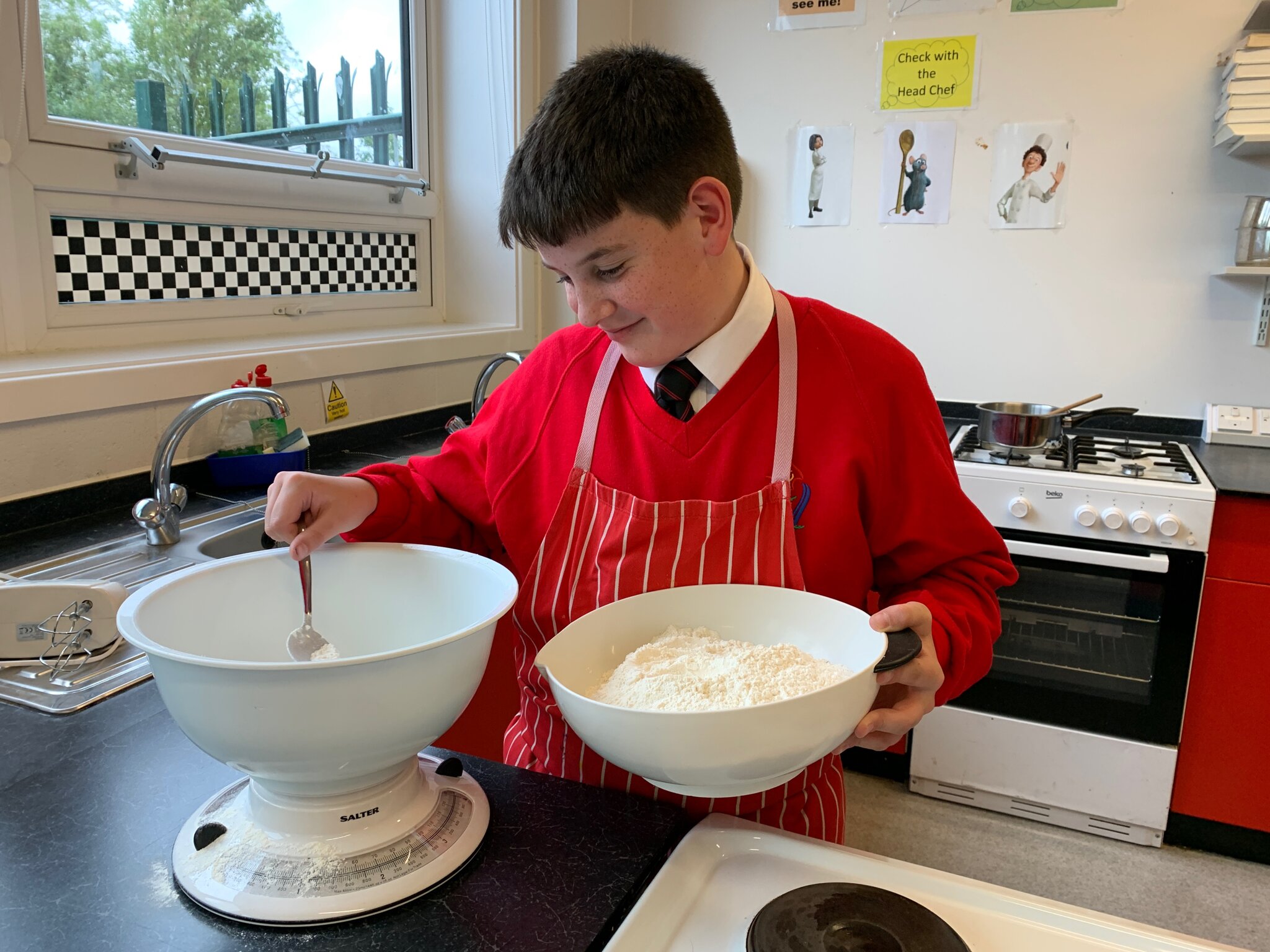D&T
Curriculum Intent:
Curriculum Features

|
Overview
|
Curriculum overview: Y7: Sustainability, food miles & seasonality
Y8: Cultural sustainability, recycling & nutritional needs
Y9: Sustainable design, packaging and nutrition
|
||||||||||||||||||||||||||||||||||||||||||||||||||||||||||||||||||||||||
|
Useful links: https://www.foodafactoflife.org.uk/ |
||||||||||||||||||||||||||||||||||||||||||||||||||||||||||||||||||||||||
|
Gallery / video / PowerPoint about the subject |
KS4 curriculum overview
|
WJEC level 1/2 Hospitality and Catering Curriculum over view:
Level 2 pass equivalent to GCSE grade 4
Food: GCSE Eduqas Food Preparation and Nutrition Curriculum overview:
NCFE Level 2 Vcert Technical Award Engineering Curriculum Overview:
|
|
Year 10 |
AUTUMN |
SPRING |
SUMMER |
| Area of study: |
Course introduction and assessment overview. Workshop H&S Coursework – Materials, CAD engineering drawing, Materials, Tools and Justification, “Practical Progress Log”, Gantt Charts, Flowcharts. Engineering drawing by hand drawing conventions, British standard BS8888, Materials and their properties –Timbers, Metal, Polymers and Smart Materials. Analyse and Evaluate knowledge & understanding. Exam prep - Engineering disciplines, Health & safety – H&S at work act, PPE, RIDDOR manual handling regulations, COSHH. Practical Tasks - Wood Project: measure, mark, cut shape, process, assemble and finish made products. This year we make a small cabinet to practice use of tools and accuracy, learning how to draw and read technical drawings |
Exam prep – revision on all key topics covered, Practice exam questions and feedback. Coursework – Flowchart, Production Plan, “Practical Progress Log”, Evaluation
|
Exam prep - Engineering disciplines Health & safety – H&S at work act, PPE manual handling regs, COSHH RIDDOR Drawing conventions Coursework – Materials & Testing – Engineering drawing Materials, Tools and Justification – “Practical Progress Log” Practical – Plastics Project measure, mark, cut shape, process, assemble and finish made product. Exam Prep - Drawing conventions Summer revision packs to be handed out and explained Coursework – Engineering drawing “Practical Progress Log” Production Plan Flow Chart, Evaluation |
| Year 11 |
AUTUMN |
SPRING |
SUMMER |
| Area of study: |
September Unit 2 Practical- Synoptic Assessment task (set by NCFE) 20 official hours allowance Exam prep ready for November Mock exams– November Mock exams for Unit 1 - understanding the engineering world. Coursework – Research Task, Materials and Tools Equipment selection and justification, CAD and Hand drawn Technical Drawings, Planning, (Gannt or Flow Chart) Manufacturing, Project Evaluation |
Practical - Continue Synoptic Assessment task set by NCFE (practical log) Coursework – Evaluation Mark Project and submit to the NCFE Moderator Spring 2 Revision Core Mock 2 |
Summer 1 & 2 Revision Exam |
GCSE Exam Information: Exam Board, papers and topics (weighting and length of paper)
Eduqas GCSE Food Preparation and Nutrition – https://www.eduqas.co.uk/qualifications/food-preparation-and-nutrition-gcse/#tab_keydocuments
WJEC Level 1/2 Vocational Award Hospitality and Catering (Technical Award) - Level 1/2 Vocational Award in Hospitality and Catering (wjec.co.uk)
